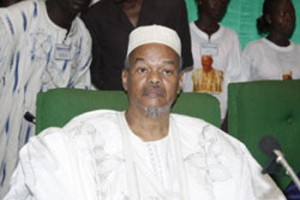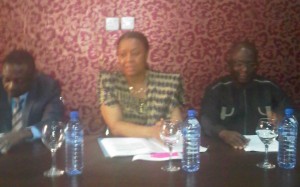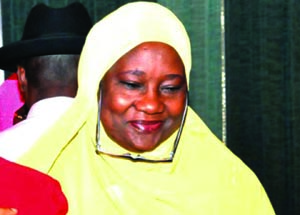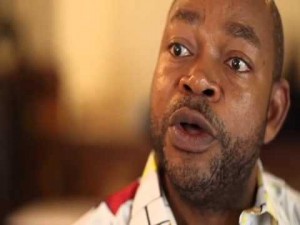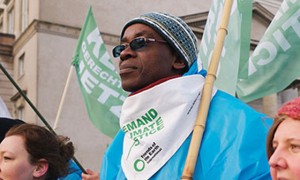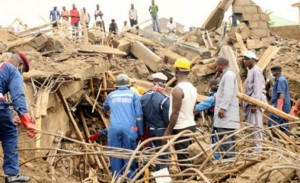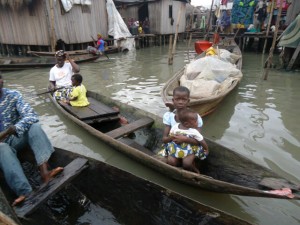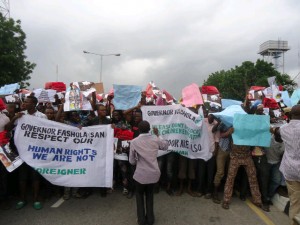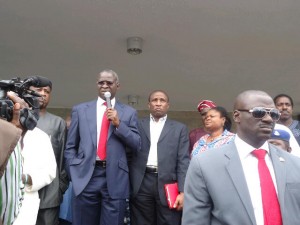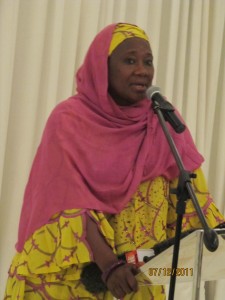The Environmental Rights Action/Friends of the Earth Nigeria (ERA/FoEN) has decried the alarming rate of deforestation caused by the charcoal business in Ekiti State, even as it demanded prompt action on the part of the state government to stave off crisis between the charcoal merchants and the local communities.

This call was made last week at capacity building/stakeholder forums on strategies for implementing ERA/FoEN logging campaign being implemented by ERA/FoEN in Irele and Oke Ako in Ekiti State and Ogbe, a town in Kogi State that shares boundary with Ekiti State.
In his welcome words, ERA/FoEN Head of Media, Philip Jakpor, described the meetings as a follow-up to a site visit and town hall meeting previously held, and that the thrust was to build the capacity of the locals to engage the loggers in dialogue and to bring all the parties together to map out solutions to the alarming rate of deforestation in the three communities.
Jakpor explained that the site visit and testimonies documented revealed grave violation of the environment and that resolutions reached at the capacity building meeting indicated that all the parties are perfectly aware of the challenges caused by the charcoal business hence solutions must be collective, embracing the communities and the loggers.
Omotayo John Paul of Green Peoples Environmental Network (GREPNET) while speaking with the community folks pointed out that ignorance and selfishness on the part of the leaders of the communities opened the doors for the charcoal business and that the solutions would only be found if they are also brought into the picture rather than a sweeping decision of the ordinary community folks against the loggers and charcoal merchants.
In his submission, Olakunle Omotayo of Community Development and Conflict Management (CEDCOM) suggested that the community folks in concert with the traditional title holders should continue engaging in order to come up with uniform views that can be sent to the government in form of a petition.
Similar views were expressed by Omolade Johnson of the Peace and Development Project (PEDEP) who noted that the petition to the state government must also take into cognisance the fears of the loggers who feel that, without an alternative source of livelihood, they will be left in the cold.
At the stakeholders meeting which held in Oke Ako, a charcoal merchant, Sunday Daniel, revealed that the charcoal business was not all benefits to the merchants and loggers as the locals believe. According to him, the challenges they encounter also include poor sales, health impacts of charcoal smoke, drudgery in the charcoal burning process, among others.
This, Daniel explained, makes the operators open to alternatives if they could be exposed to such.
Daniel’s argument was corroborated by Paul Otu, another charcoal merchant, who said that they would like government to assist them if their trade is halted.
During the site visit, other charcoal merchants who confided in the ERA/FoEN team revealed that their activities are with the consent of the community leaders and forest guards working for the state forestry department. The forest guards, they alleged, collect a yearly fee of N24,000 from them. In addition, they pay N350 monthly to the forest guards. Another N350 is paid for every 60 bags that are freighted out of the forest.
ERA/FoEN Forest and Biodiversity Desk Officer, Rita Iyke-Uwaka, however explained that the massive cutting of trees in the forests in Irele, Oke Ako and Ajowa which ERA/FoEN field monitors documented in an earlier visit would not have happened if the community folks had been educated on the implications of the practice by the government and environmental groups.
The high point of the meeting was when representatives the three communities agreed to belong to the Community Forest Watch, an ERA/FoEN initiative, which Iyke-Uwaka said is to monitor, report and protect as well as mobilise forest communities to build alliance and resistance against sharp practices that could result in forest ecosystem degradation.
She told the participants that the group would also synergise with other forest community watch groups that ERA/FoEN had established in Iguobazuwa in Edo State and others in Cross Rivers State.
At the end of the meeting, participants resolved to petition the state government on critical agreements reached during the capacity building and stakeholder meetings. Some of the decisions are: that cutting of the trees in their forest must be halted promptly; that a reforestation scheme be initiated in the affected forests; massive awareness campaigns using local language to create awareness on the dangers of deforestation, and that the loggers and charcoal merchants are exposed to alternative and sustainable agricultural programmes to wean them off logging.

